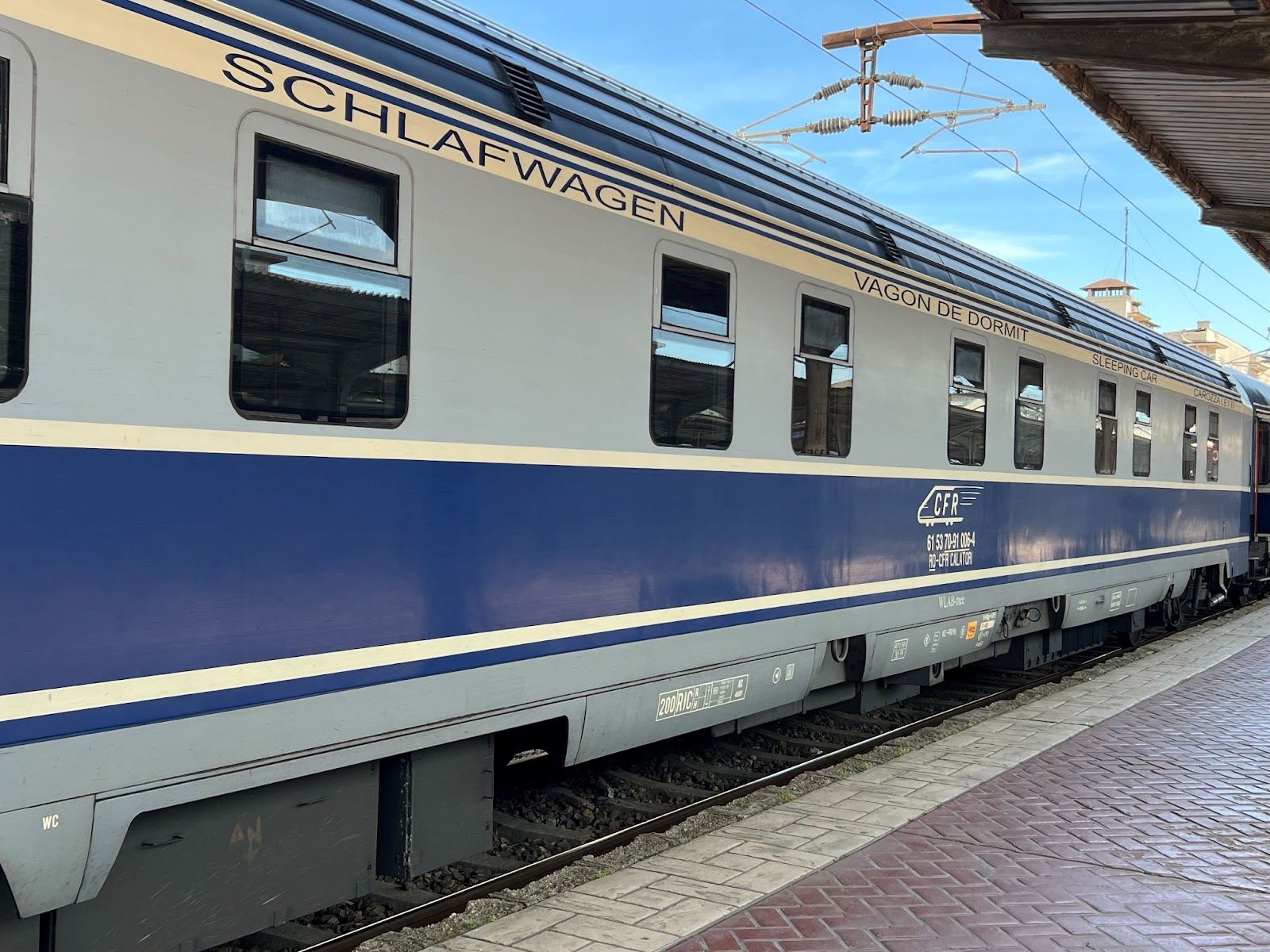A Journey from Berlin to Bucharest: Rails, Reflections and Border Checks
Jacob Lippold reminisces about taking the train to join our General Assembly in Bucharest and talks about the future of European international rail.

When Jacob left his hometown of Berlin to join the Volt General Assembly in Bucharest, he had a plan. He’d leave the plane grounded and venture on a 1700 kilometre train journey spanning four countries. We spoke to him about his experience travelling through our European railways.
Berlin to Bucharest is just a few hours by plane, whereas the train journey takes a whopping 27 hours. What made you decide to take such a lengthy route?
I have a tendency to take the train whenever possible. This was a particularly long trip, but since I had some time off, I decided to see more of the countries I was to pass through.
This is an often underappreciated aspect of rail travel: you get to marvel at the landscape instead of clouds and the latest blockbuster.
Also, let’s not forget that trains go from city centre to city centre. Though it often takes longer to get there, it also involves less stress and effort getting to your final destination.
But in the end, the train is the environmentally friendly option, as per kilometre it produces 6-8 times less carbon than flying. It’s a way of travel I feel I stand for as a Volt member. And certainly one that needs to be developed further.
Alright let’s have it. What went wrong?
Well a lot 🙂. My journey had two legs. One was to bring me from Berlin to Vienna, and another from Vienna to Bucharest. The issues started with the booking, which had to be done from two different websites. It seemed the two companies were unaware of each other’s existence.
For this reason I had to book it with a 2-hour gap in between, but the stress really hit when my first train was seriously delayed and no announcements were made on whether the second train would wait or alternative options, something unthinkable in any national railroad.
The frequency of trains is often seriously too low, e.g. from Vienna to Bucharest just once every 24 hours. In most European countries, trains between big cities run to midnight, even with low occupancy, as we value connectedness. Why don’t we do the same across borders?
What worked well?
I didn’t need to print my ticket, they were fine with me showing it on my phone. Also, the staff on the trains spoke English well, which is certainly convenient.
But overall, I love the experience of passing through landscapes and cities, over being up in the air the whole time. There’s so much to see, it’s very relaxing once you’re on the move. Finally, it’s worth mentioning again that getting on and off in the city centre allowed me to gain considerable time to visit my destination instead of having to go through annoying airport experiences.
27 hours is rather a long time. Were the seats comfy, at least?
From Berlin to Vienna I booked a normal seat, lucky to find one with no-one beside me. It was pleasant enough.
The night train from Vienna to Bucharest actually had private sleeper compartments, so I was quick to book one. It comes with a bed, which is brilliant if you’re sleepy, but the return trip ended in the early afternoon, when I’d much rather have a seat. But now I’m nit-picking.
 Would you say it was more luxurious than flying?
Would you say it was more luxurious than flying?
I have to be honest, the trains were quite worn down and not the cleanest. It had its charm though - symbols of 1990s laptops reminded me of times long past. The bed however was freshly made and comfortable enough. It was cosy lying in bed, reading up on the European countryside passing by my window.
Were there any unexpected moments during your journey?
I was woken up in the middle of the night for passport control at both the Hungarian-Romanian border crossings, which was frustrating. It's quite baffling to me that Romania, a country in the heart of Europe is not yet part of the Schengen area, where border checks are typically eliminated.
I felt like a kid in the 90s again, on the backseat of my parents' car trying to get into Denmark for our summer holiday.
Why do you think international rail has such a tiny market share?
Most people just want fast travel and low prices. That’s what airlines offer. But I feel the tide is turning, as also many of my friends start exploring train options before booking. A friend of mine just went from Germany to Southern Italy, and checked the train first. But as it had too many stops and badly connected trains, he flew instead.
In my opinion, the European Union needs to promote a train network with centralised booking, connecting timetables and consumer protection. People are willing to switch behaviour, but Europe has to help them along the way.
Do you see a future for European international rail?
Yes, but we need to stop thinking that the market alone will fix this. Every market needs a vision and regulatory framework to function well. The Eurostar from Amsterdam to London is currently under threat because of operational difficulties. Would politicians allow a major European airport to close down for a year?
We can see EU Vice-president Frans Timmermans is trying to enforce centralised booking, and night trains between European capitals seem to be slowly re-emerging. Germany just introduced a subsidised €49 / month national rail pass. If we find a sustainable and connected Europe important, why couldn’t we do this at the EU level?
The EU should work on creating a high speed rail connection and a night connection in each member state. Timetables should connect, transfer communication should be mandatory, and more consumer protection should be introduced. Furthermore an EU-wide ticketing system should connect all these journeys, so Europeans will be connected in a sustainable and affordable way. Only by the EU demanding the national railroads work together will we get travellers out of aeroplanes!